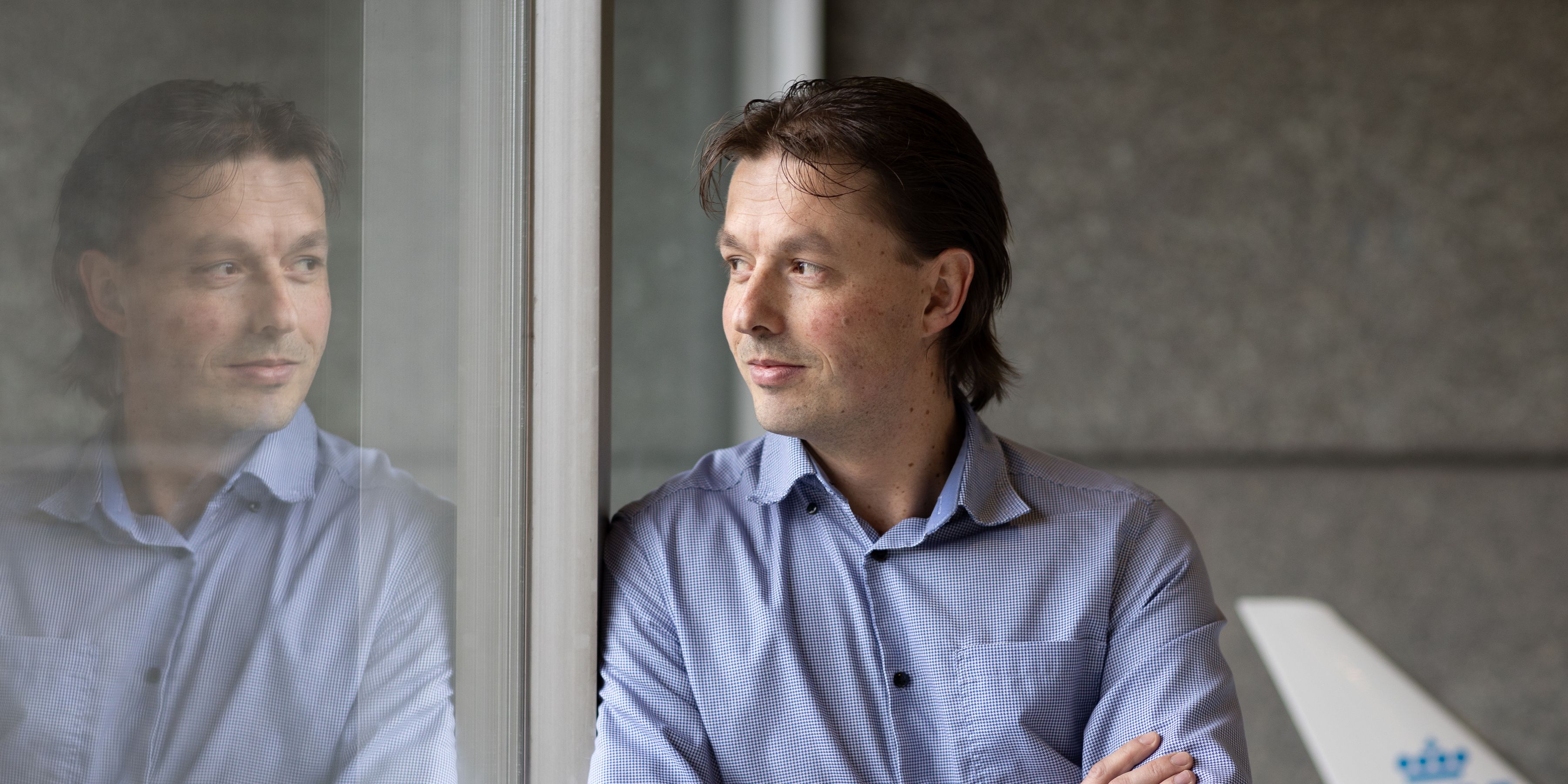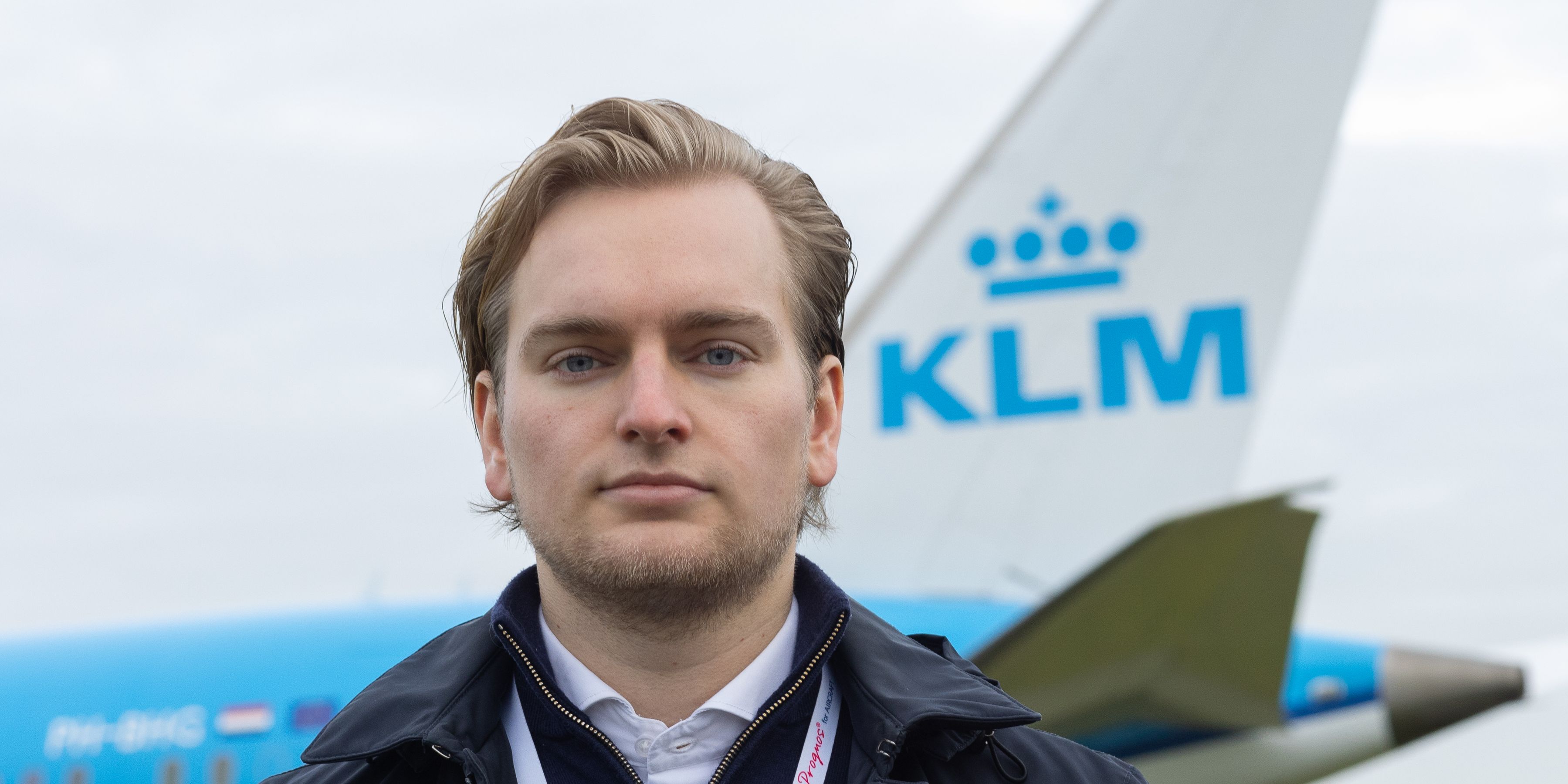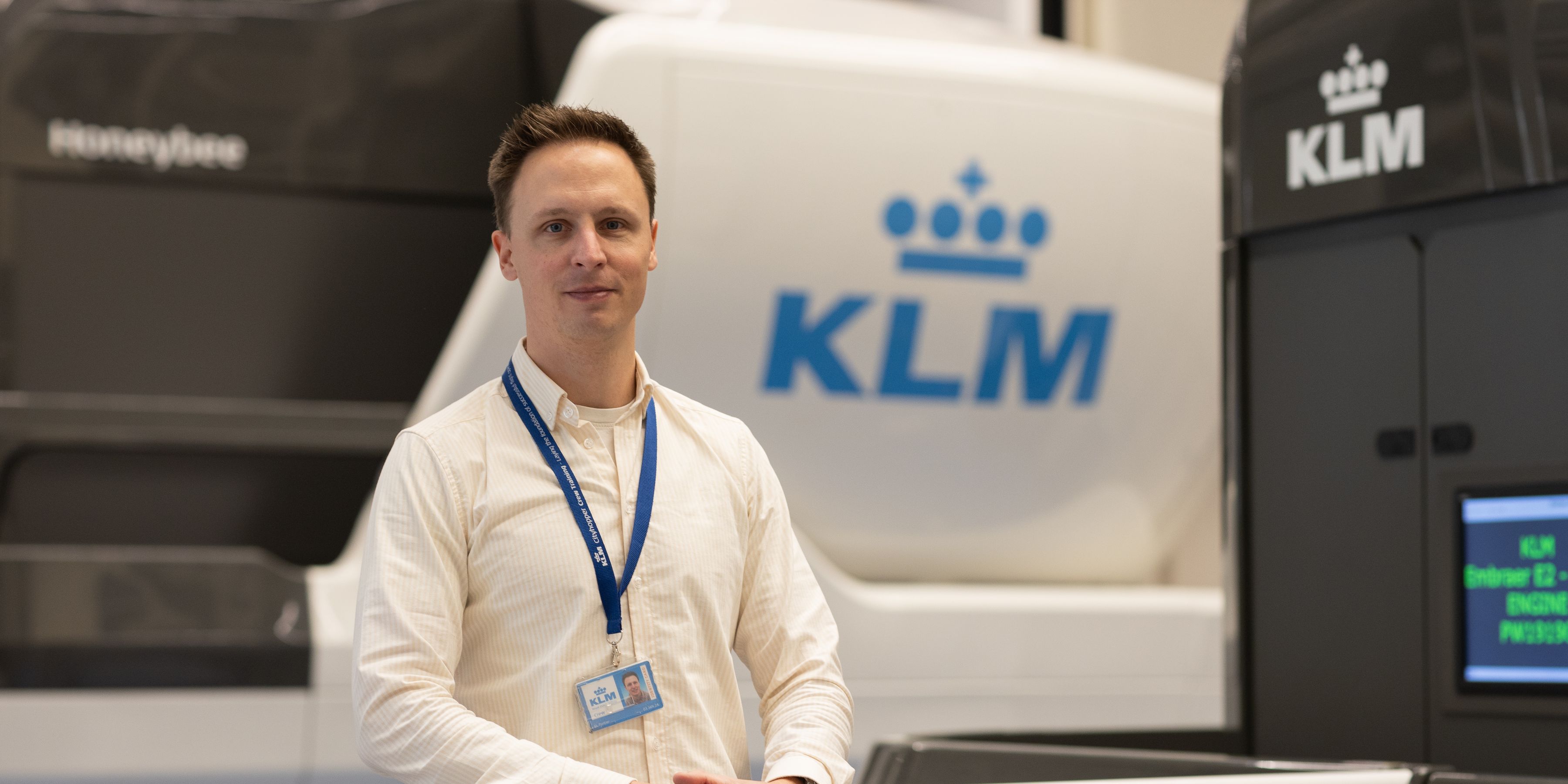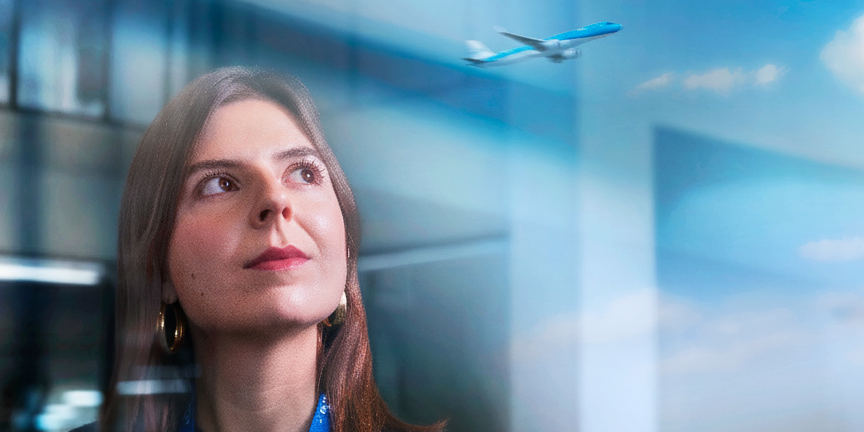From analysis to action: how KLM enables robots to think for themselves
Robots that can make their own decisions and act may sound futuristic, but at KLM, it is already in the making. Volkert, Vice President of Technology & Technical Innovation, works with his team on technology that goes far beyond data analysis. His mission is an operation in which robots are not directed by humans, but act independently, guided by data and AI. “That requires a different infrastructure, different questions, and a healthy dose of courage.”
Building tomorrow, today
“The things we develop today will make the difference tomorrow and the day after,” says Volkert. As VP Technology & Technical Innovation at KLM, he leads two departments. BlueLabs, an internal incubator that works like a start-up, looks for solutions to problems for which no adequate answers exist yet. The Data & Technology department focuses on virtually all technology needed for the airline’s operations. “Together, we are building a future-proof organisation. Our focus is not on today, but on tomorrow, the day after, and beyond.”
AI as an optimisation tool? Useful, but not enough
KLM already uses AI in several ways. “For example, to optimise take-off and landing, or to sift through legal files. Using AI for data analysis helps us make better decisions faster,” Volkert explains. “But that’s not innovative. Everyone can, and already does, that. Where it becomes truly interesting is when AI can act on its own: autonomous, without human control or intervention.”
From analysis to autonomous action
“Most robots today still do only what we tell them. We want to make that smarter,” Volkert says. “An AI model should be able to control a robot directly. Without a human in between. No tablet, no joystick. Just data.” For now, this remains an ambitious vision. But that does not mean it is only a dream. “You must start now by gathering the right data and setting up the infrastructure. That preparation is crucial if you want the technology to work properly later. If you wait until you have the robot in place, you’ll be too late.”
According to Volkert, it is no coincidence that KLM looks so far ahead: pioneering is part of the company’s DNA. “We come from a small country, but we are a major global player. We must be smart and innovative to stay ahead. Innovation is in our blood. It is not a luxury, it is a necessity.”
Smart applications: from baggage basement to aircraft stand
There are many ways autonomous robots could make a difference to KLM’s operations, in airport logistics, for instance, or on the apron. Volkert also mentions baggage handling. “It is physically demanding work, with a high risk of injury. I expect that within five years, we will have a task robot in the basement taking over the heaviest lifting. We already have lifting aids that help with hoisting, but soon they will be able to do more: moving and stacking suitcases independently, based on weight, destination, and connection time.
Such a robot is there to support people, not replace them. It doesn’t have to do everything. If it performs one task well, it already takes a lot of heavy lifting off our hands.Volkert
Robots do not yet speak a universal language
The outlook is promising, but Volkert still sees a major challenge: “Each robot currently learns one specific, well-defined task. There is no universal model that enables robots to understand multiple situations. There are many different languages, which create barriers when robots must communicate with each other or with people. That is where preparation is critical.”
He argues for a generic protocol, a kind of shared AI grammar for physical systems. “One that also understands human assumptions. If people talk about an elephant and a mouse, we instantly know that one is big and the other is small. A robot does not grasp that distinction, so you must explain it. That makes the risk of miscommunication high.”
According to Volkert, the search for such a new lingua franca should also take place beyond KLM’s walls. “Parties from aviation, logistics, shipping and other industries need to join forces to find an answer. I do not have the solution. But I do want to ask the right question.”
The future starts today
The potential of AI and robotics is huge, but only if we prepare for the technology in time. “If we invest now in the right data, the right infrastructure and the right questions, we will truly make a difference later,” Volkert concludes.
Curious about how robots, data and AI are shaping the airline operations of the future? Join his presentation at the AI & Big Data Expo 2025 in Amsterdam, where Volkert will show how future autonomy is already beginning today.




